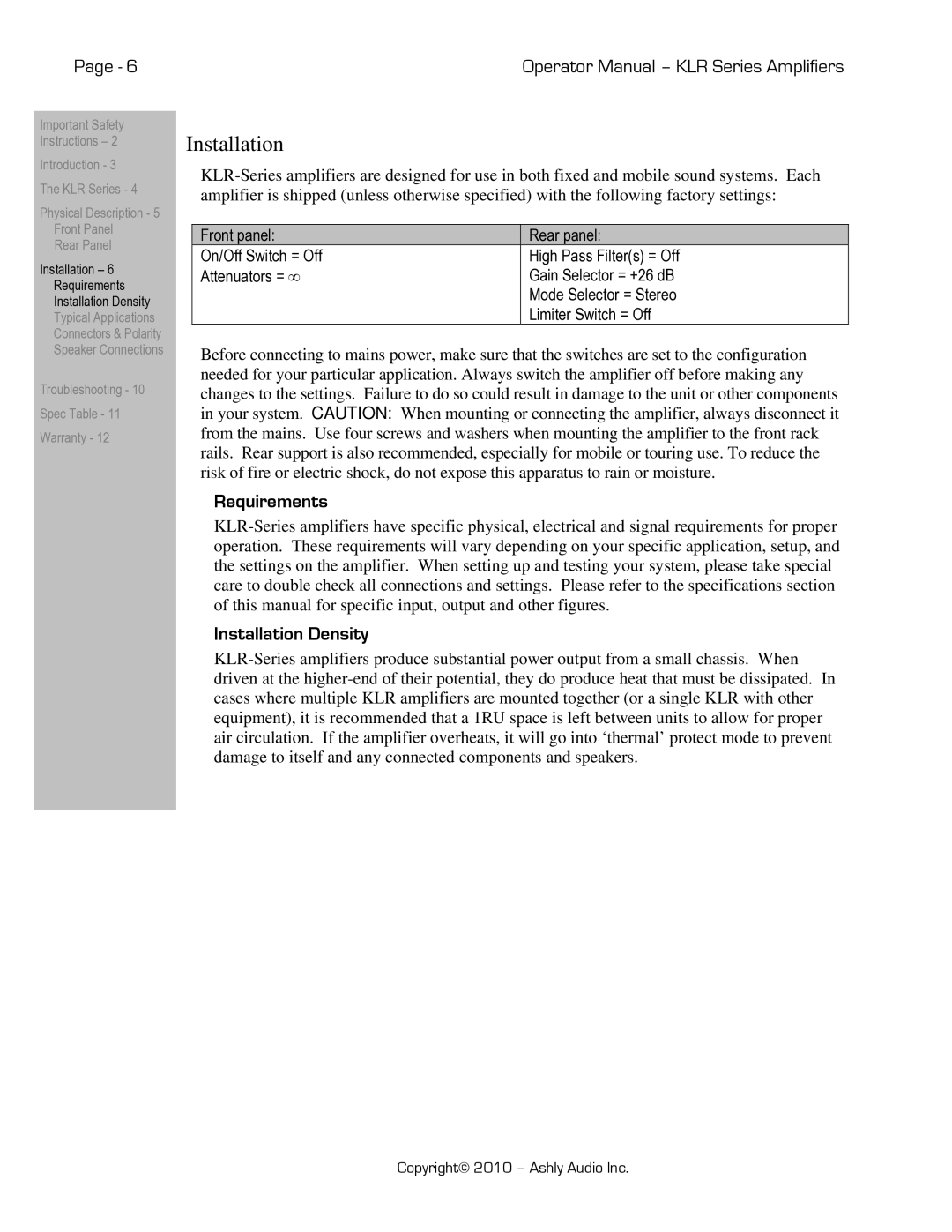KLR 3200, KLR 2000, KLR 5000, KLR 4000 specifications
The Ashly KLR series comprises a range of high-performance amplifiers, including the KLR 2000, KLR 3200, KLR 4000, and KLR 5000. Designed with the needs of both professional audio engineers and enthusiasts in mind, these amplifiers offer exceptional power, flexibility, and durability for various applications ranging from live sound reinforcement to installed sound systems.The KLR 2000 is the most compact model in the series, delivering 2,000 watts of peak power at 4 ohms. This amplifier features a rugged design, ensuring reliability during demanding performances. It incorporates innovative technologies, such as a high-efficiency Class AB design that minimizes distortion and maximizes sound quality. With an intuitive front-panel LED indicators for signal and clip, as well as comprehensive protection circuitry, the KLR 2000 is ideal for smaller venues or mobile applications.
Next in the lineup, the KLR 3200 provides increased power capacity with 3,200 watts of peak power, making it suitable for medium-sized venues or larger setups. It maintains the same dependable construction and performance features as its smaller counterpart but introduces dual-channel operation with independent level controls. This feature allows users to tailor their sound more precisely, addressing various acoustical challenges in diverse environments. The KLR 3200 also boasts advanced thermal management, ensuring optimal performance even during extended use.
The KLR 4000 steps up the power significantly, offering an impressive 4,000 watts of peak output. This model excels in high-demand applications, such as concert halls and large-scale events. The KLR 4000 utilizes a linear power supply with a toroidal transformer, providing exceptional power reserves for dynamic transient response. Additionally, it features comprehensive signal processing capabilities, including built-in filters and equalization options, allowing users to tweak the sound to their specific needs without extra external devices.
At the top of the range, the KLR 5000 delivers an astounding 5,000 watts of peak power, designed for the most demanding applications. It includes advanced connectivity options, including XLR and Speakon inputs, facilitating versatile integration into various audio systems. The KLR 5000 also features an integrated fan system for enhanced thermal management and reliability, ensuring consistent performance even in high-stress environments.
In summary, the Ashly KLR series amplifiers impress with their robust design, advanced technologies, and remarkable performance across various applications. Whether for smaller venues with the KLR 2000 or large-scale events with the KLR 5000, each model in the series is a testament to Ashly's commitment to quality and innovation in professional audio.

